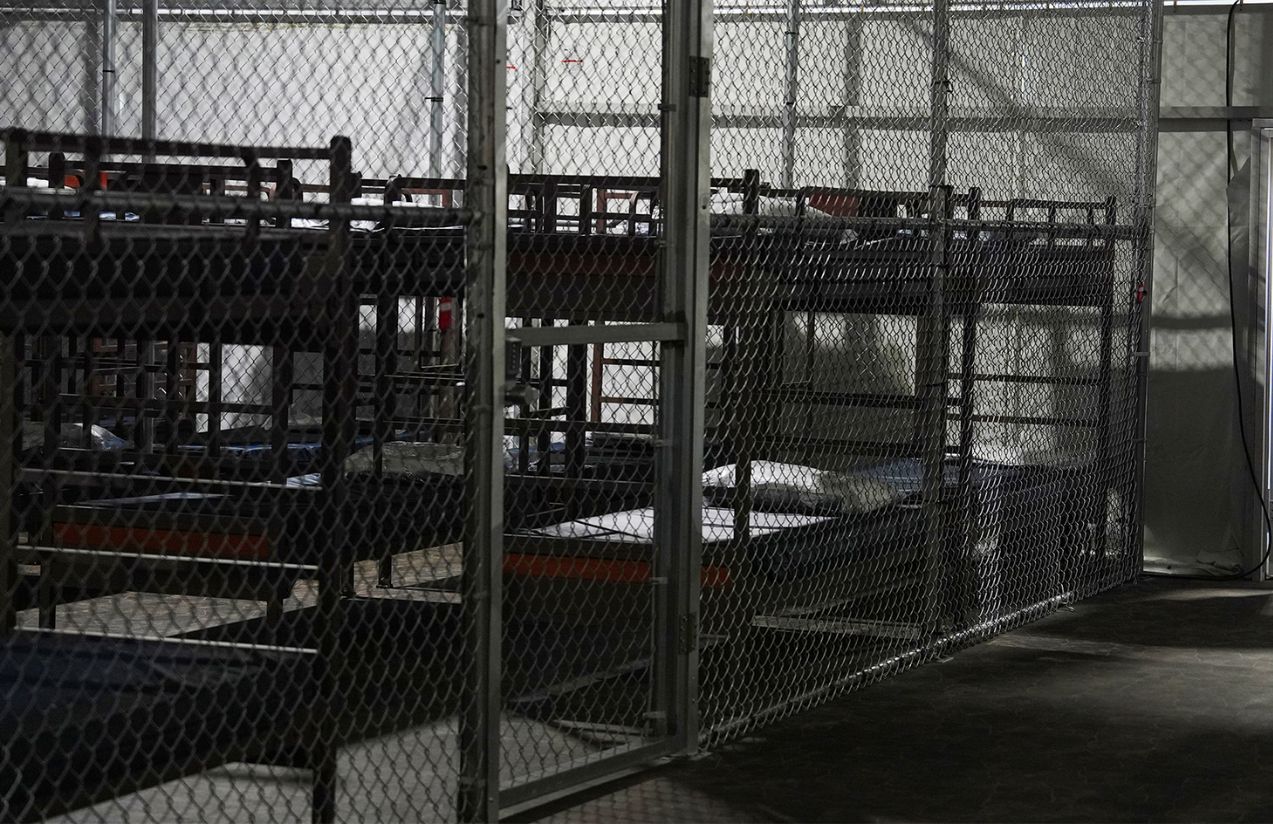Some immigrants held at the Federal Detention Center in Miami were allegedly forced to eat with their hands cuffed behind their backs—a practice described as humiliating and degrading—according to a new report by Human Rights Watch (HRW), Americans for Immigrant Justice, and Sanctuary of the South. The document highlights alleged abuses in three detention centers in South Florida and accuses authorities of subjecting detainees to “inhumane” conditions.
Published on July 21, the report focuses on the Krome North Service Processing Center, the Broward Transitional Center (BTC), and the Federal Detention Center in Miami. It details overcrowding, unsanitary conditions, and inadequate access to medical care in all three facilities.
CNN reached out to U.S. Immigration and Customs Enforcement (ICE) for comment but has yet to receive a response.
HRW’s findings are based on interviews with individuals currently or recently detained, as well as with family members, attorneys, and a review of official ICE data.
Although CNN has not independently verified all the allegations, this is not the first time such conditions have been reported. Multiple organizations and media outlets have documented similar complaints in the past.
The surge in detentions is closely tied to immigration policies adopted under President Donald Trump, who has pledged a “mass deportation” campaign. These policies, coupled with mounting pressure on ICE to increase arrests and removals, have contributed to a significant rise in the number of people held in custody.
Currently, around 57,000 individuals are in ICE detention, according to federal data reviewed by CNN. While the government claims it is targeting the “worst of the worst,” records show that most detainees do not have serious criminal convictions.
According to HRW, the overall detained population has nearly doubled compared to the previous year, reaching the highest levels in U.S. history. In the three Florida centers mentioned in the report, the number of detainees has increased by 111% since Trump took office.
One of the most striking accounts comes from Harpinder Chauhan, a British businessman who was detained by ICE during a routine immigration appointment. He said detainees were forced to eat with their hands cuffed behind their backs. “We had to crouch down and eat off the chairs with our mouths, like dogs,” he recounted. Another immigrant, identified only as Pedro, added, “We had to eat like animals.”
The report also highlights ongoing mistreatment by ICE agents and private security contractors in all three facilities. At Krome, a center officially designated for men, one Argentine woman said she was detained in an area with exposed bathrooms visible from adjacent male cells. “If the men stood on a chair, they could look straight into our room and the bathroom,” she said.
Other testimonies collected by HRW paint a bleak picture: people sleeping on cold concrete floors under constant fluorescent lighting, without bedding or access to basic hygiene. One man reported sleeping next to a toilet in a cell so overcrowded that detainees had to step over each other to move. Another said he was denied soap and water for 20 consecutive days.
Conditions at Krome have worsened significantly in recent months. Since January 2025, the detained population has tripled, according to HRW. Though the facility is designed to hold about 600 people, ICE data from April showed more than 670 in custody—well above capacity.
Located in southwest Miami-Dade County, Krome was originally opened in 1980 to house Cuban and Haitian refugees. Over the years, its role shifted. Today, it operates under ICE jurisdiction as a detention facility for immigrants of various nationalities awaiting deportation or asylum decisions.
Krome has faced public scrutiny before. In mid-April, dozens of relatives of detainees gathered outside the facility, demanding improved conditions.
The report also points to inadequate medical care, even for detainees with chronic conditions such as HIV, asthma, or diabetes—raising further concerns about detainee welfare inside ICE custody.

